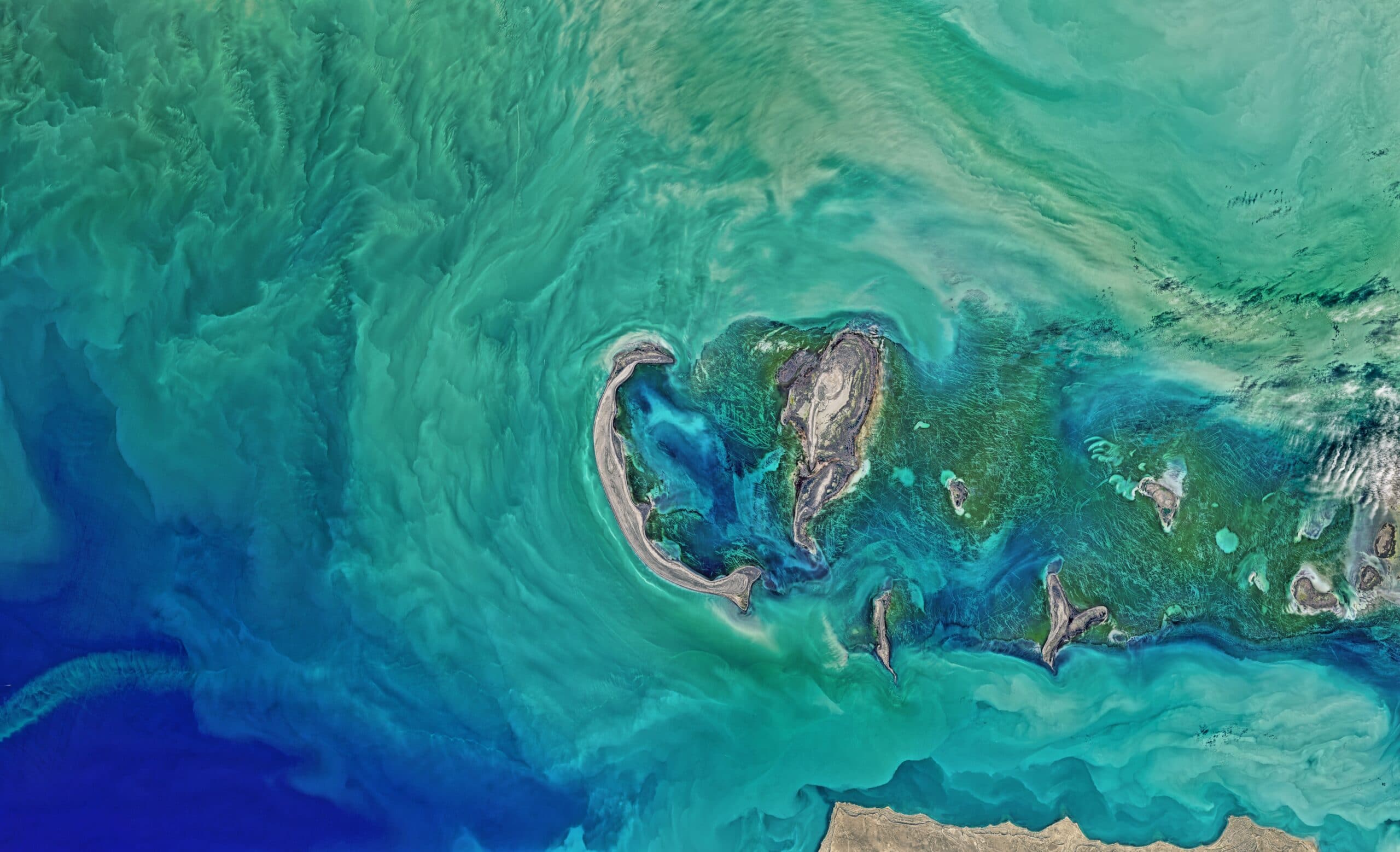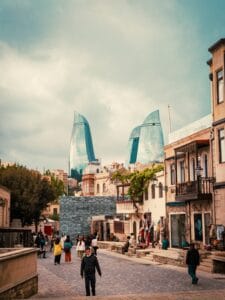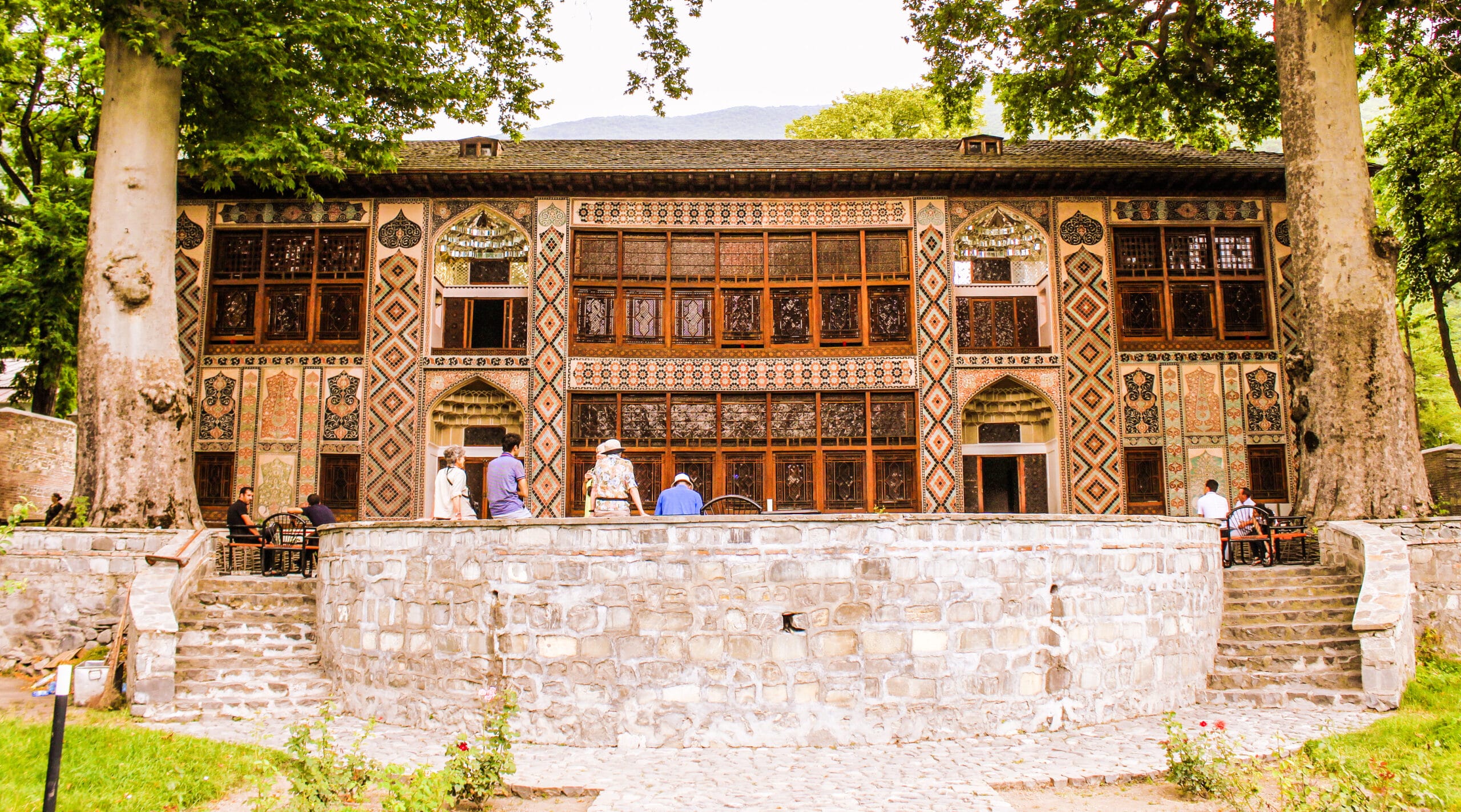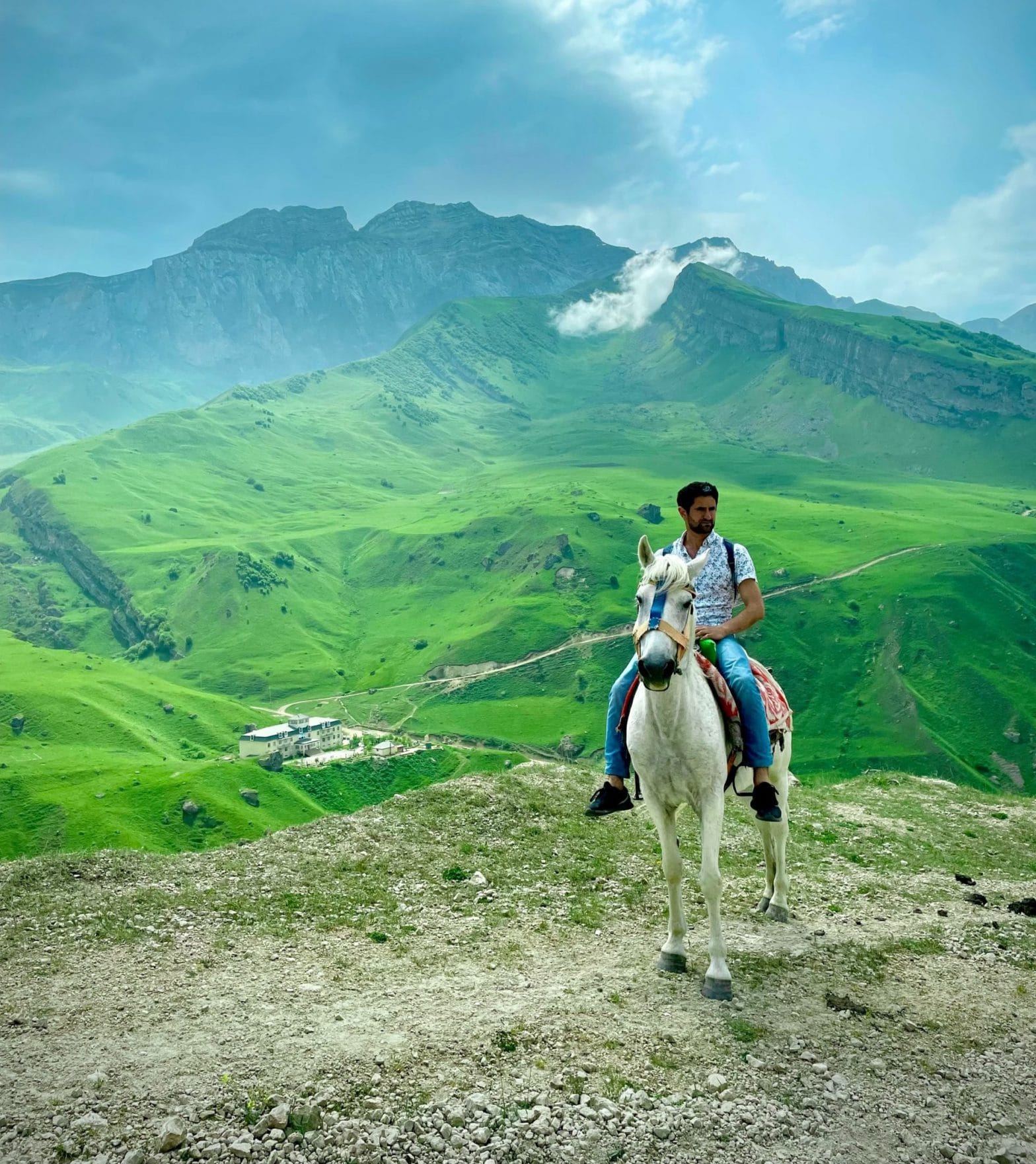Azerbaijan’s history is intimately linked to the discovery of crude oil. The black gold fever that gripped the capital Baku at the end of the 19th century fostered incredible growth and by the turn of the 20th century, Azerbaijan was producing nearly half of the world’s oil. Revolutions, invasions and eventually independence were to follow and with the fall of the Soviet Union in the early 1990s, Baku began reinventing itself as an ultra-modern metropolis set for the international stage. Today, thanks to a vast accumulation of oil wealth, Azerbaijan has now become an international economic powerhouse. Futuristic Baku attracts not only numerous multi-nationals but has become an attractive destination for expats.
What does expat life in Azerbaijan look like? Foyer Global Health gives you some tips to find your way around this stop on the old silk road…
Moving to Azerbaijan: entry formalities
All travellers – except for nationals of Russia and former Soviet republics–must have a valid visa for the entire duration of their stay to enter Azerbaijan. For a 30-day visa, you can apply online but if you wish to stay more than 30 days, you will have to apply with the relevant Azerbaijani Embassy. The visa must be valid until your departure date from the country. Any foreigner planning to stay in Azerbaijan for more than three days must register with the State Migration Service within three days of arrival in the country and inform them of their departure. To work in Azerbaijan, you must have a valid work permit and a temporary residence permit, which you or your employer can obtain from the State Migration Service of the Republic of Azerbaijan.
Living in Azerbaijan: Accommodation
Where to live?
- Baku’s city centre and old town are home to an increasing number of ultra-modern buildings with furnished flats. There, you’ll find a mix of new and traditional housing, heavy traffic, and a good dose of lively surroundings. It’s the perfect place to live for people who work in Baku’s city centre and wish to get around by foot.
- With its green spaces and shopping malls, Baku’s Ganjlik district is ideal for those coming to live with their family. If you are thinking of enrolling your children in an international school, it is best live outside city centre, as these schools are located on Baku’s periphery.
- Port-Baku, the capital’s new modern district built on the ashes of a former industrial area, is home to some high-class residential blocks. You’ll get plenty of the glitz and glamour of undeniable oil wealth.
- Badamdar, Yasamal and Vorovsky are perfect for expats looking for a bit of calm and quiet.
To keep in mind:
- Rental contracts must be registered with a notary to be legally binding, and are usually valid for one year, with tacit renewal.
- Most rental properties in Baku are already furnished; don’t be surprised if the landlord pays you a visit once a month to check his house/apartment according to the lease. You can ask the real estate agency to remove this customary clause from the contract.
- Landlords often ask to be paid in cash.
- There is no written inventory and no deposit.
- Before signing your lease, remember to ask the landlord or the estate agent who should pay the water, gas and electricity bills (i.e. You or the landlord?) and carefully check the electrical, gas and water installations (beware of “pirate connections”!).
Schooling in Baku
Since the beginning of 2000, Azerbaijani public schools have been providing education in Azeri and Russian. In Baku, there are also several private international schools, notably the Lycée français de Bakou, which welcomes children from kindergarten to high school, but also the American school BIS (Baku International School) and The International School of Azerbaijan (TISA), which prepares students for the International Baccalaureate.
Getting around Baku and in Azerbaijan
Traffic in Baku is generally very heavy. Residents use their own vehicles (essential for venturing outside the capital), taxis, the metro and buses. In fact, many expatriates living in Baku have private chauffeurs. If you have a vehicle, you must register it with the Customs Department and with the General Directorate of Traffic Police of Azerbaijan, which will issue a vehicle registration card and number plate. We recommend you obtain an international licence valid for three years to ensure that you can travel safely. If you live and work in the city centre of Baku, it is totally possible to get around by foot.
Is living in Azerbaijan safe?
The city centre of Baku is not particularly dangerous even for a single woman, especially in the summer when the pedestrian streets are full of families. In winter, however, it is advisable not to venture alone into the poorly lit streets of the capital and the outlying areas.
If you wish to explore the mountainous areas, be sure to check the weather conditions, especially during the winter months.
You must not venture into the conflict zone of Nagorno-Karabakh, Nakhchiv and Dagestan.
Health in Azerbaijan
Modelled on the Soviet system of universal and free access to healthcare, Azerbaijan’s public health system is mostly inefficient and underfunded in terms of access to care, quality of care and medical infrastructure.
Even today, shortages of equipment, staff and even medicines are common in rural areas. Private medical facilities, which are growing rapidly, especially in Baku, operate to much higher medical standards, with more modern equipment and qualified staff. Expatriates usually turn to the capital’s specialised private health facilities. In some cases of medical emergency, it is strongly advised to plan for an evacuation abroad and it is therefore highly recommended to take out private international health insurance in Azerbaijan.
You must avoid drinking tap water and you must use bottled water for drinking, brushing your teeth and cleaning fruit and vegetables.
Cost of living
Azerbaijan’s currency is the Manat (AZN); AZN 1 is equal to approximately €0.52. Generally speaking, the cost of living in Azerbaijan is about four times less than that of the UK, although property prices in Baku can sometimes be equivalent to that of some European capitals. For expatriates with a job and a salary, income tax ranges between 14% and 25% depending on the industry they are working in and their income.
Azerbaijan’s top attractions:
- The beautiful Khan’s Palace in Shaki
- The Palace of the Shirvanshahs and the carpet museum in Baku
- Caviar tasting on the shores of the Caspian Sea in Baku
- Gobustan petroglyph reserve
- Thermal cure at Altyagach
- Quba’s country side



